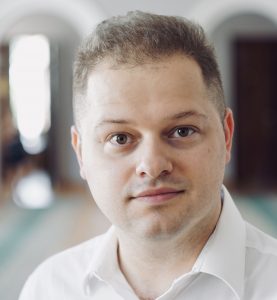Not My Church: Ukraine’s New Draft Law Dealing with the Ukraine Orthodox Church of (not) the Moscow Patriarchate
Dmytro Vovk is a visiting associate professor at Benjamin N. Cardozo School of Law and Director of the Centre for the Rule of Law and Religion Studies, Yaroslav Mudryi National Law University (Ukraine). An earlier version of this piece was posted on Forum18.
is a visiting associate professor at Benjamin N. Cardozo School of Law and Director of the Centre for the Rule of Law and Religion Studies, Yaroslav Mudryi National Law University (Ukraine). An earlier version of this piece was posted on Forum18.
The Russia-Ukraine war, starting with the annexation of Crimea and the military conflict in eastern Ukraine and continuing with Russia’s full-scale invasion, has had a tremendous effect on freedom of religion or belief (FoRB) and other related human rights in the region. Murders, tortures, forced detention, and FoRB violations—including forced displacement of priests and believers, acts of religious discrimination and social hatred to religious minorities inspired and directed by Russian proxies, as well as expropriations of religious properties—have become the reality of the territories occupied by Russia in 2014 and 2022.


